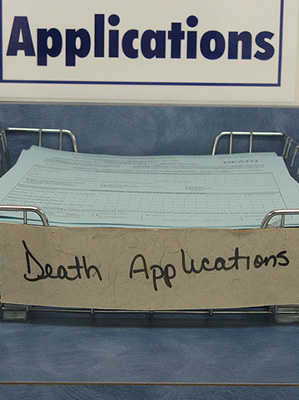How many years of petroleum oil do we have left in our reserves? It is a pretty important question. Because oil is the life blood of civilization. Oil is what make trucks and container ships running, what gets food into the shelves of our grocery stores.
I have written about this fateful question in blogposts on this blog before,
here and
here.
There are quite a few "Oil Depletion Countdown Clocks" out there on the sea of internet, and most of them
vastly overstates our oil reserves, at least by half, according to some experts like
Ron Patterson (see
this article) of the
Peak Oil Barrel blog (see also the text at the end of this blogpost, at [1]).
Here are the countdown clocks I could find:
Oil Countdown (thinks we have 1,491 billion barrels left, counts only barrels, not years, in years it would probably be about 44 years)
(From the latest page:
"No more oil by 2068
In 2018, there were an estimated 1.73 trillion barrels of oil in the world. Enough oil to last another 50 years with an average global oil consumption of 95 million barrels per day.")
I remember seeing one clock where we had 50 years left, but I cannot find it anymore. But all this indicates what many people think about our oil reserves.
* * *
Of course we are never going to produce the last barrels of these reserves. It will be uneconomical, to say the least. Civilization will have collapsed completely long before that.
But it is a thought experiment. If you believe in these statistics, you may calculate, with the help of them, the end of civilization
at the latest, because a green transition to renewables is impossible at scale, as I have shown in
this blogpost. It's just not possible in physics terms.
But suppose the most optimistic of these clocks is correct. That we have 51 years left of oil. That we really will recover the last barrel of these reserves. Then we land at 2074. One year before 2075, which certain Christian prophets around
this homepage in the US say is the end of the Age of Grace, of a 2000 year period that began with the Fall of Jerusalem, and will end with the Second Coming of Jesus. Prophecied by the Essenes, according to these prophets. It's interesting. Read for example
this article about it.
I "might" be alive 2074 by the way. Then I'm 90 years old. Then you understand why I think that I will not die by age or sickness, but by starvation.
Could I be alive then? Only if a miracle happens. If we invent some miracle technology that defies entropy. Or then I might simply be transformed to heaven in "
the Rapture", thus avoiding death. But Jesus might wait until Babylon falls completely. He might. But I don't count on it, because Jesus is merciful. But I have calculated that I might very well die from starvation 1.1.2036. It is a guess.
* * *
[1]
Something about estimating our oil reserves:
"We can calculate how long civilization will last by looking at our oil reserves.
"In its latest Statistical Review of World Energy, BP estimated the world had 1.7297 trillion barrels of crude oil remaining at the end of 2018. That was up from 1.7275 trillion barrels a year earlier and 1.4938 trillion barrels in 2008. In 1998, the world had 1.1412 trillion barrels in remaining reserves." (from this article from 2019)
There are some tricky things here. Something isn't as it seems. How could our oil reserves grow, if we seriously consider the following facts:
"Every year since 1984 oil consumption has exceeded oil discovery." (from a comment to this article)"
End quote.
Maybe the main reason, or one of the main reasons, why our oil reserves have grown so much lately, is that we have begun to count all kinds of strange oil and not oil, especially very expensive unconventional oil, in our reserves. This is tricky. It is something of the same phenomenon as I wrote about in
this blogpost. "Stealth Peak Oil". We fool ourselves into thinking that we have a lot of oil, while the real question is
if the oil is affordable, if it is economical to exploit. In poor times, in financial depressions, in the collapse of industrial civilization, which is coming, 100 % sure, sooner or later, we might not afford to produce our very expensive shale oil and tar sand deposits. And we are marching over "the Energy Cliff" (Steve St. Angelos term) right now, into a deeper and deeper global recession, and finally it will land in a depression which never ends before the End arrives. A probably happy end, I think, because I believe in a higher world.
* * *
 How I quite worrying and learned to love the apocalypse" on Peak Oil News & Message boards on May 28, 2016, is interesting, for deeper study.
How I quite worrying and learned to love the apocalypse" on Peak Oil News & Message boards on May 28, 2016, is interesting, for deeper study. 
